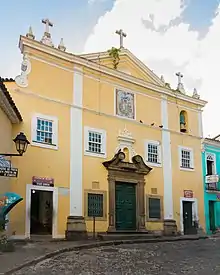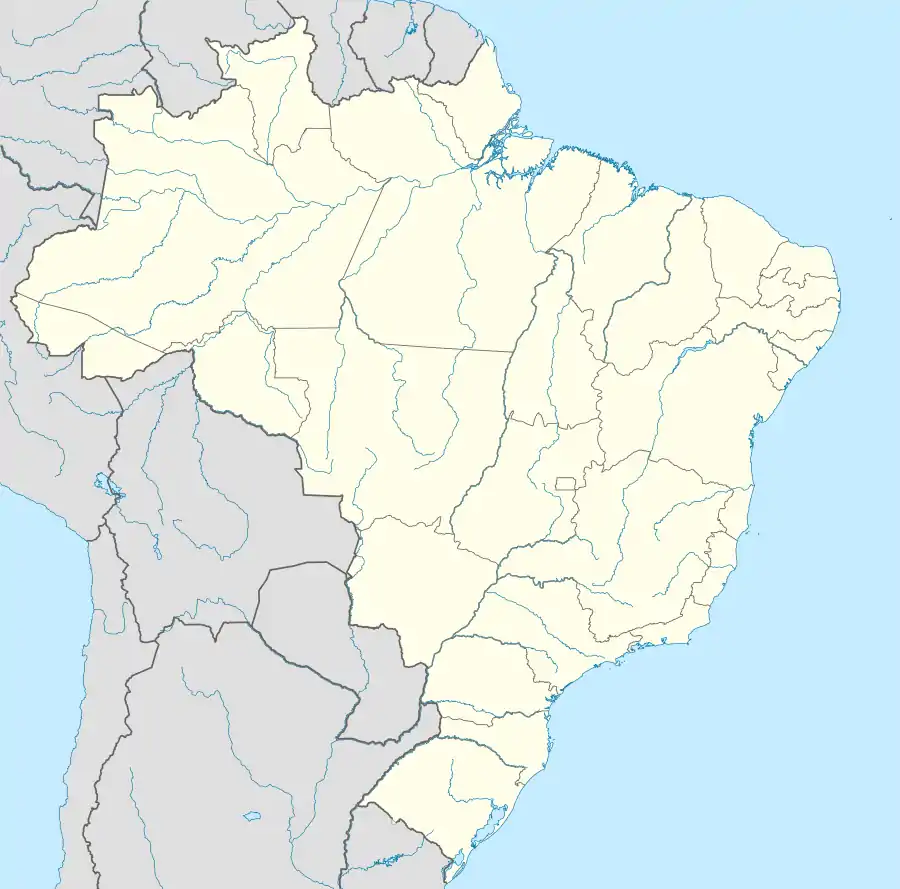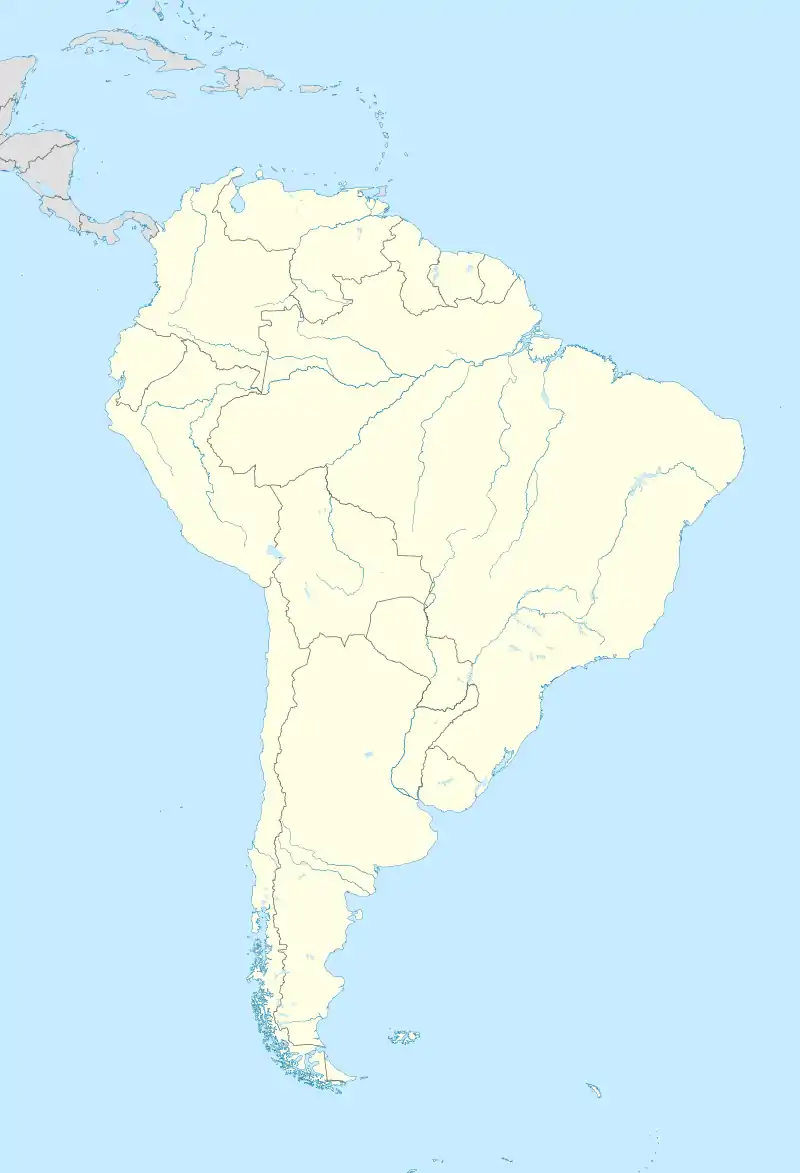Church of Saint Michael (Salvador)
The Church of Saint Michael (Portuguese: Igreja de São Miguel) is an 18th-century Roman Catholic church and former convent in Salvador, Bahia, Brazil. The church is dedicated to Our Lord Jesus of Bouças Crucified of the Via Sacra and Saint Michael (Senhor Bom Jesus de Bouças Crucificado da Via Sacra e São Miguel.). The church was donated to the Third Order of Saint Francis in 1744. It was listed as a historic structure by the National Historic and Artistic Heritage Institute in 1938[1][2][3][4]
| Church of Saint Michael | |
|---|---|
Igreja de São Miguel | |
 Church of Saint Michael, Salvador, Bahia, Brazil | |
| Religion | |
| Affiliation | Catholic |
| Rite | Roman |
| Location | |
| Municipality | Salvador |
| State | Bahia |
| Country | Brazil |
 Location of the Church of Saint Michael in Brazil  Church of Saint Michael (Salvador) (South America) | |
| Geographic coordinates | 12.97414°S 38.50779°W |
| Architecture | |
| Date established | 1732 |
| Direction of façade | West |
National Historic Heritage of Brazil | |
| Designated | 1938 |
| Reference no. | 89 |
History
Francisco Gomes do Rego, a member of the Third Order of Saint Francis, donated land for the construction of the Church of Saint Michael. Construction of the church began in 1725 as a house of prayer. It was completed in 1732 by Francisco Rego as a church. The church, adjacent house, and 33 other houses were donated to the Third Order of Saint Francis after Rego's death in 1745. His ornate tombstone in the church has the inscription Francisco, great sinner and unworthy founder of this chapel, asks for mercy from brother of the Third Order. The Third Order installed a panel of azulejo tiles with an emblem of the order in approximately 1790.[1][2][4]
Location
The Church of Saint Michael is located within the Historic Center of Salvador. It sits on Rua Frei Vicente, a cobblestone street, that connects the Pelourinho to Baixa dos Sapateiros. The church is surrounded by 19th century houses.[2][3]
Structure
The Church of Saint Michael has a façade with a triangular pediment. A portal at the center of the façade is in stone with a triangular pediment with volutes with a niche at center. An image of the Virgin Mary sat in the niche, but is now removed. A panel of polychromatic azulejo tiles is above the portal; it depicts an emblem of the Third Order of Saint Francis. The azulejo panel was produced in Lisbon. The church has four windows at the choir level, two of which open to the choir. A church has a belfry at the level of the façade at the same level of the azulejo panel. It has two openings, one to Rua Frei Vicente and one to the west. A single bell remains in the church.[1][3][4]
Interior
The interior of the church has a rectangular nave with a choir and chancel, side aisles and tribunes, a sacristy, and smaller miscellaneous rooms. The altar originally had an image of the Our Lord Jesus of Bouças; it was replaced in 1854 by an image of Christ Crucified from the collection of the Church of the Third Order of Saint Francis in 1854. An image of Saint Michael sits below.[1][3]
Protected status
The Church of Saint Michael was listed as a historic structure by the National Historic and Artistic Heritage Institute in 1938. The structures were registered under the Book of Historical Works, Inscription no. 89.[3]
Access
The Church of Saint Michael is closed to the public and may not be visited.
References
- Lins, Eugénio Ávila (2013). "Igreja de São Miguel". Lisbon, Portugal: Heritage of Portuguese Influence/Património de Influência Portuguesa. Retrieved 2018-12-11.
- "Capela de São Miguel" (in Portuguese). Salvador, Brazil: IPAC. 2018. Retrieved 2018-12-14.
- Secretaria da Indústria, Comércio e Turismo (Bahia, Brazil) (1997). IPAC-BA: inventário de proteção do acervo cultural. 1 (3 ed.). Salvador, Brazil: Secretaria da Indústria e Comércio. pp. 29–30.CS1 maint: multiple names: authors list (link)
- Talento, Biaggio; Hollanda, Helenita (2008). Basílicas & capelinhas : um estudo sobre a história, arquitetura e arte de 42 igrejas de Salvador. Salvador, BA: Bureau Gráfica. pp. 151–152. ISBN 9788585923228.
| Wikimedia Commons has media related to Igreja de São Miguel (Salvador). |